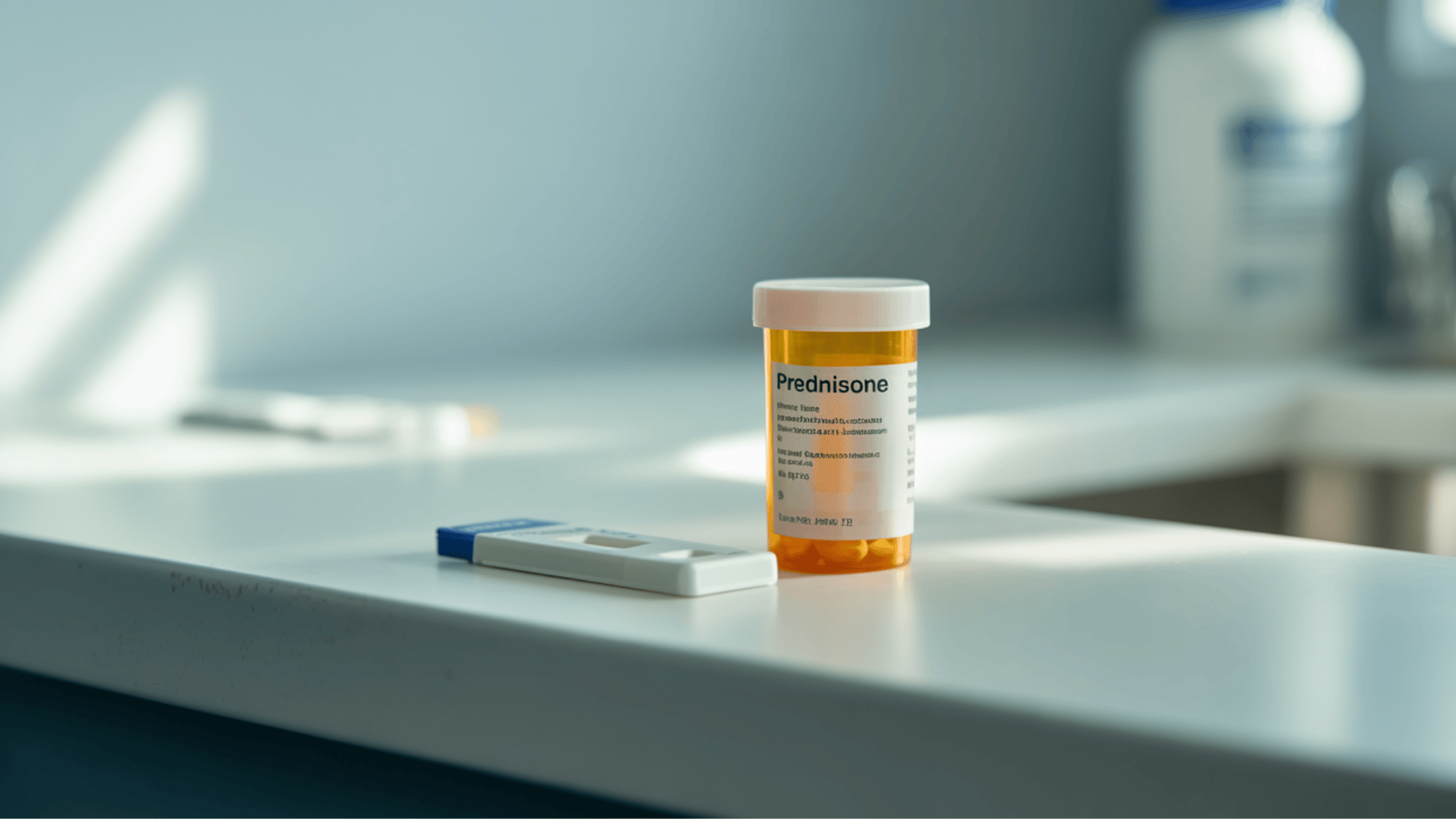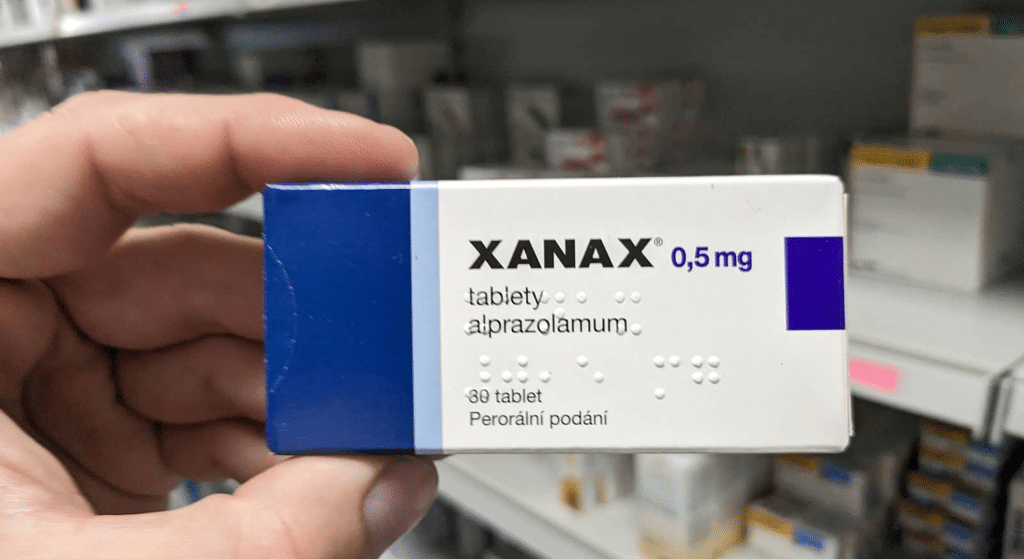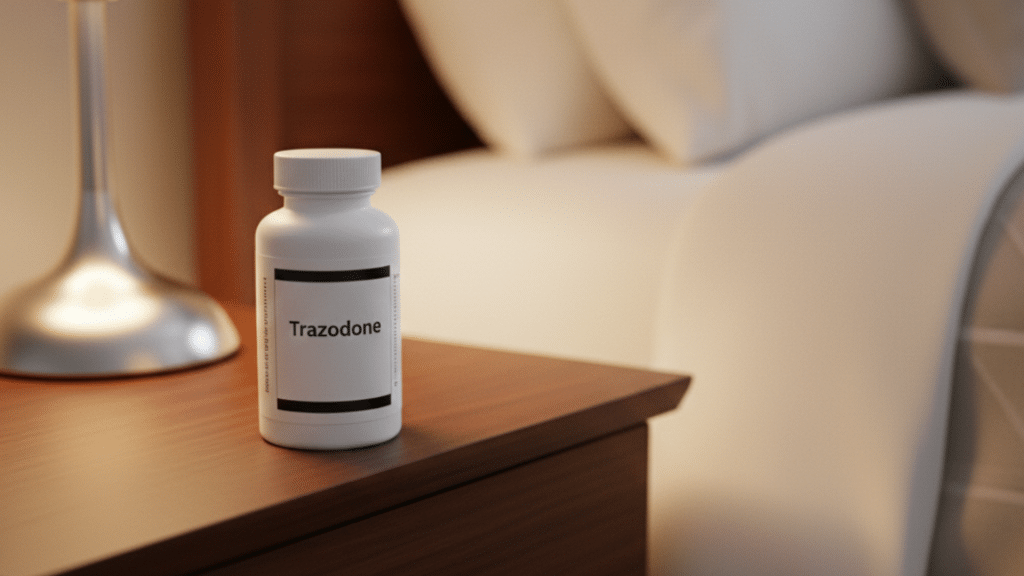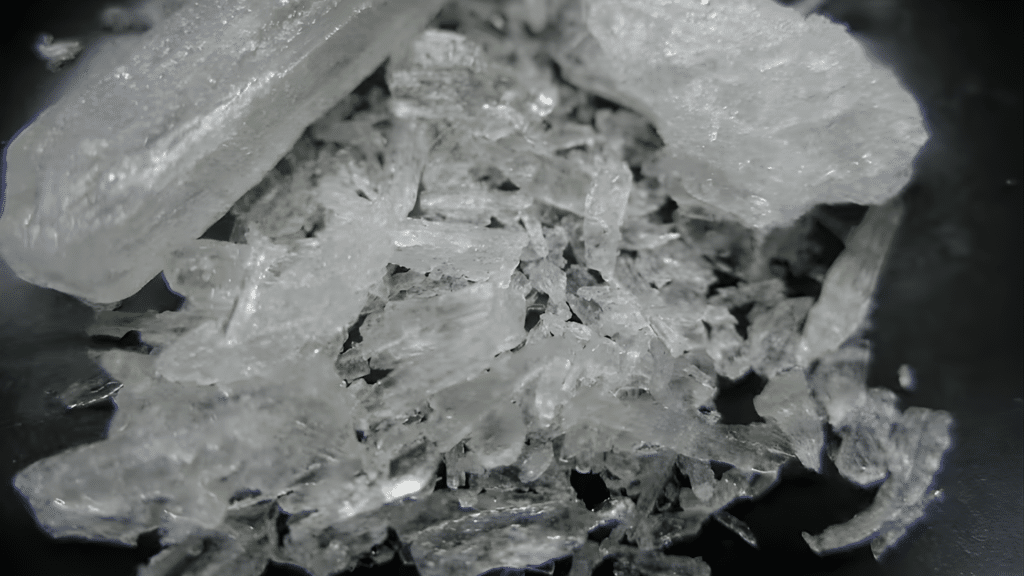I remember wondering, Does prednisone show up on a drug test? If you’re taking this medication, it’s normal to feel unsure about how it might affect results for work, sports, or medical checks.
Prednisone is a widely prescribed drug, but most people don’t know if it’s included in routine screenings.
Today, I will explain what prednisone is, if it appears on standard or specialized drug tests, how long it stays in your system, and what steps you should take before testing.
By the end, you’ll have a clear answer and feel confident about where you stand.
What is Prednisone and Why is it Prescribed?
Prednisone is a corticosteroid, a medicine that reduces swelling, pain, and immune reactions.
It’s very different from anabolic steroids, which are artificial forms of testosterone sometimes misused for muscle growth.
Doctors prescribe prednisone for medical reasons such as asthma, severe allergies, rheumatoid arthritis, lupus, skin problems like eczema, and inflammatory bowel disease.
It may be used short-term for flare-ups or longer in chronic conditions, but its purpose is always to manage inflammation, not to boost performance.
Can Prednisone Be Detected in Drug Tests?
Unlike drugs of abuse such as opioids, amphetamines, or marijuana, prednisone is not typically included in standard drug screening panels used for employment or routine testing.
However, there are specific types of tests that can detect prednisone and related corticosteroids when needed.
1. Standard Workplace and DOT Drug Tests
Most workplace drug tests, including those required by the Department of Transportation (DOT), are designed to detect substances with a high potential for abuse, such as:
- THC (marijuana)
- Cocaine
- Opiates
- Amphetamines
- PCP
Prednisone does not fall into these categories, so it is not detected during routine drug screenings.
Even in regulated industries or federal employment contexts, prednisone is not flagged because it is not a controlled substance and has no significant potential for abuse.
2. Sports and Anti-Doping Tests
In professional and competitive sports, anti-doping agencies may conduct more detailed drug tests that include screening for corticosteroids like prednisone. These tests are conducted under regulations from organizations such as:
- The World Anti-Doping Agency (WADA)
- The U.S. Anti-Doping Agency (USADA)
Prednisone may be tested for because corticosteroids can enhance performance or mask other drugs, depending on how and when they are used.
Some forms of corticosteroids are banned in competition unless a Therapeutic Use Exemption (TUE) is granted.
3. Medical Monitoring and Steroid Panels
In clinical settings, doctors may order specialized steroid panels to monitor patients taking prednisone. These tests are used to:
- Ensure proper dosing
- Track how the body metabolizes the drug
- Check for potential side effects (such as adrenal suppression)
These panels are specifically tailored to detect prednisone and its metabolites and are only used when medically necessary as part of a treatment plan.
Quick Reference Table
| Test Type | Will It Detect Prednisone? | Purpose |
|---|---|---|
| Employment Drug Screen (e.g., DOT) | ❌ No | Detects drugs of abuse; prednisone is not included |
| Sports Anti-Doping Test | ✅ Possibly | Checks for performance-enhancing or banned substances |
| Medical Steroid Panel | ✅ Yes | Monitors therapeutic use and potential side effects |
How Long Does Prednisone Last in Your System?
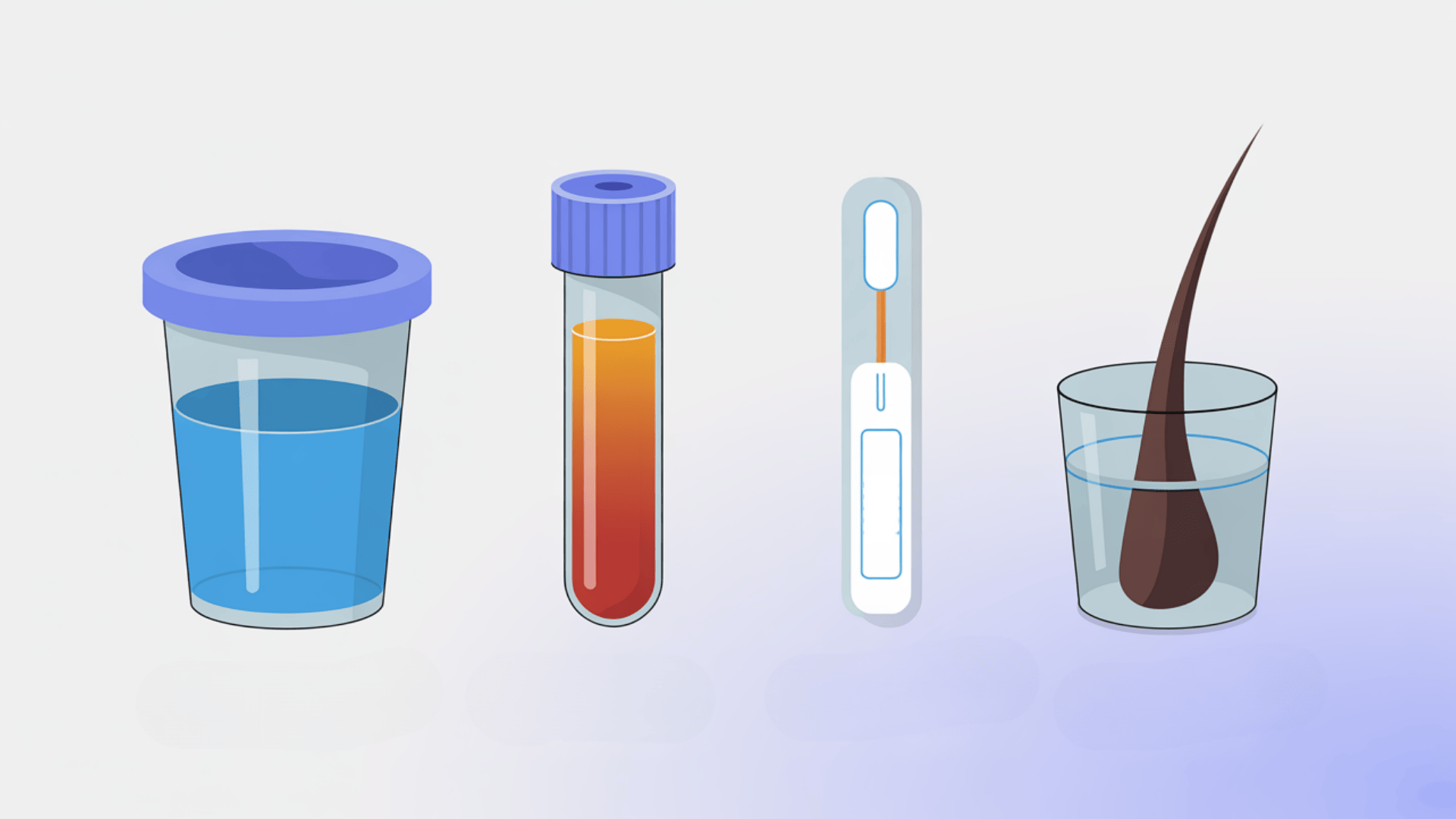
Prednisone can stay in the body for different lengths of time, depending on the type of test used.
Each testing method has its own detection window, so results can vary widely based on how the body processes the drug.
1. Urine
Prednisone is generally detectable in urine for about 24–48 hours after the last dose. This method is the most common for drug monitoring purposes.
However, the detection window is fairly short, which means prednisone clears from the body quickly than many other substances, making it harder to track long-term use.
2. Blood
In blood, prednisone can usually be identified for up to 22 hours after intake. Blood tests are less common but provide highly precise and reliable results.
They offer an accurate snapshot of the body’s current drug levels, making them useful when immediate medical decisions must be made regarding recent prednisone consumption.
3. Saliva
Prednisone can be detected in saliva for roughly 12–24 hours. Like blood, saliva testing reflects recent usage instead of showing extended consumption patterns.
Because the detection window is so short, saliva testing is rarely used outside medical monitoring situations, making it less practical for standard drug screening purposes.
4. Hair
Hair testing has the longest detection period, as prednisone can remain present for weeks or even months within growing strands. This provides a history of exposure.
Since hair traps traces of prednisone over time, it’s mainly used in research studies or special investigations rather than routine medical or workplace drug testing.
In general, younger people with faster metabolisms process and clear prednisone more quickly than older adults.
The duration for which prednisone remains in your system can vary based on factors such as age, dosage, treatment duration, liver and kidney health, and metabolism.
Can Prednisone Cause a False Positive?
Prednisone is unlikely to cause problems on a standard drug test, but there are a few details worth noting.
Prednisone is a corticosteroid, not an anabolic steroid. In rare cases, advanced steroid panels could flag it, but this does not apply to routine employment drug tests.
Prednisone will not trigger results for opioids, marijuana, cocaine, amphetamines, or benzodiazepines.
These are the substances most workplace tests screen for, and prednisone does not resemble them chemically.
Other drugs, such as some antibiotics, antidepressants, or decongestants like pseudoephedrine, are more likely to cause false positives.
Prednisone is not on this list and carries a very low risk of misinterpretation.
What to Do If You Use Prednisone Before a Drug Test?
If you are prescribed prednisone, taking a few simple steps before your test can prevent confusion:
- Always Bring Prescription Documentation: Carry your prescription bottle or a doctor’s note to the testing site. This provides proof that you are taking prednisone under medical supervision.
- Notify Employer or Test Center Ahead of Time: Let the testing administrator know before the test begins. Informing them early avoids delays and helps ensure your results are interpreted correctly.
- Know the Type of Test Being Used: Ask whether the screening is a standard panel or a specialized steroid panel. Standard workplace and DOT tests do not check for prednisone.
- Plan for Timing if Possible: Since prednisone leaves urine and blood quickly, testing a day or two after your last dose usually means it won’t appear at all unless a steroid-specific test is ordered.
- Communicate with Your Doctor: If you are worried about the test, ask your doctor for advice. They can provide written confirmation or help explain your treatment if questions come up.
In most situations, being upfront and prepared with proof of your prescription is the easiest way to avoid problems during a drug test.
Conclusion
You’ve learned how long prednisone can remain in your system, why the risk of false positives is low, and what steps help prevent confusion.
I’ve found that keeping your prescription handy and being upfront with the testing center is the best way to avoid issues.
A little preparation goes a long way toward peace of mind. So if you’ve ever asked, Does prednisone show up on a drug test? You now have the clarity to move forward with confidence.
For more practical guidance on health, wellness, and everyday concerns, check out my other blogs for helpful information you can depend on.
Frequently Asked Questions
Is Prednisone Tested for in Pre-Employment Physicals, Not Just Drug Tests?
Pre-employment physicals may note prescriptions like prednisone, but the drug itself is not screened unless a steroid-specific test is ordered.
Can Prednisone be Detected in At-Home Drug Test Kits?
No, common at-home kits do not test for prednisone. They focus on drugs like THC, opioids, or amphetamines.
Does Prednisone Use Need to be Reported to the DMV or Licensing Boards?
In most cases, no. However, if prednisone affects your ability to perform safety-sensitive work, disclosure may be required by certain agencies or boards.

